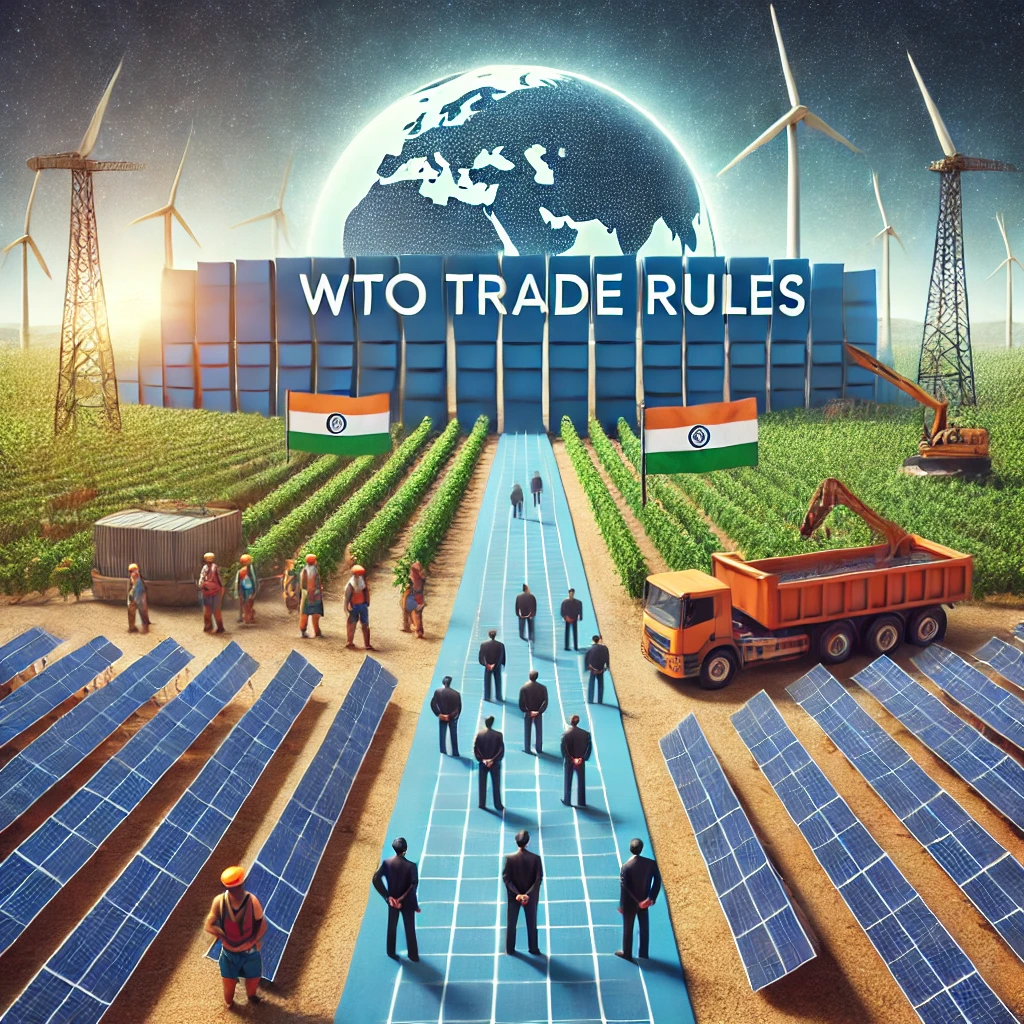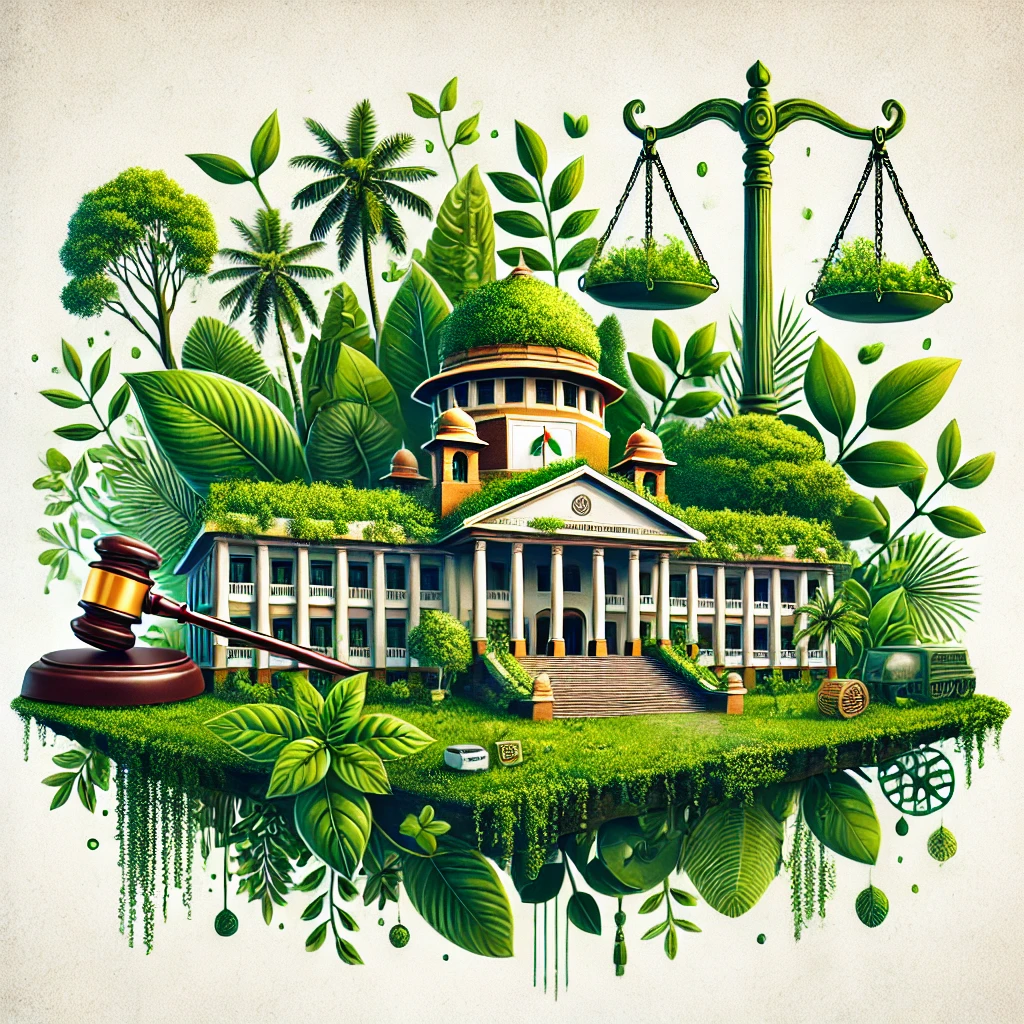Environmental laws at Palau
Palau, an island nation in the Pacific Ocean, has a strong commitment to environmental conservation, given its unique ecosystems, including coral reefs, forests, and marine life. The country’s environmental laws aim to protect its natural resources, promote sustainability, and mitigate environmental degradation. Here's an overview of the main environmental laws and regulations in Palau:
1. Palau National Code (Title 24) – Environmental Laws
This is the primary legal framework for environmental protection in Palau. It covers a range of environmental issues, including pollution, wildlife protection, waste management, and natural resource conservation. Title 24 outlines the country’s commitment to safeguarding its environment and managing natural resources sustainably.
2. The Environmental Quality Protection Act (EQPA)
The EQPA is one of the core pieces of environmental legislation in Palau. It provides the foundation for environmental protection by addressing pollution control, environmental standards, and sustainable development. Key provisions of the EQPA include:
Pollution Control: It sets standards for air, water, and land pollution, regulating emissions and effluent discharges.
Environmental Impact Assessment (EIA): Requires the assessment of potential environmental impacts before the approval of major projects, such as infrastructure and industrial developments.
Waste Management: Regulates the management and disposal of hazardous and non-hazardous waste.
3. The Marine Protection Act
This law is focused on the protection of Palau's marine environment, which is crucial for the country’s economy, culture, and biodiversity. Key features of the Marine Protection Act include:
Marine Protected Areas (MPAs): Establishment of protected marine zones to preserve biodiversity, fish stocks, and coral reefs.
Marine Conservation: Provisions to protect endangered marine species, regulate fishing practices, and control marine pollution.
4. The Forest Conservation Act
Palau’s forest ecosystems are vital for its biodiversity, and the Forest Conservation Act is designed to protect the country's forests and their resources. This includes:
Sustainable Forestry Practices: Guidelines for sustainable logging and land use practices to prevent deforestation and habitat destruction.
Protection of Native Species: The law protects native plant species and prohibits the introduction of invasive species that could threaten local biodiversity.
5. The Wildlife Protection Act
The Wildlife Protection Act aims to conserve and protect Palau’s unique terrestrial and marine species. It includes provisions to:
Endangered Species Protection: Establish legal protections for endangered species, including restrictions on hunting and collection.
Habitat Preservation: Efforts to preserve the natural habitats of threatened wildlife.
6. The Public Lands Act
This law governs the use and management of public lands in Palau. It regulates the lease, sale, and development of public lands while ensuring that such activities do not harm the environment. The act aims to promote responsible land use and conservation of natural resources.
7. The Protected Areas Network Act
The Protected Areas Network (PAN) Act was established to safeguard Palau's key environmental areas, including forests, wetlands, and marine habitats. It outlines the creation and management of protected areas and conservation programs that contribute to biodiversity preservation.
8. The Coral Reef Protection Act
Coral reefs are one of Palau's most valuable natural resources, and this law focuses on their protection and sustainable use. The Coral Reef Protection Act includes:
Regulation of Coral Harvesting: Prohibition on destructive activities that damage coral reefs, such as certain types of fishing or mining.
Reef Restoration Programs: Promotes reef restoration and conservation efforts to mitigate the impacts of climate change and pollution on coral reefs.
9. The Palau Climate Change Policy
As an island nation vulnerable to the impacts of climate change, Palau has developed a climate change policy aimed at:
Adaptation and Resilience: Identifying and implementing measures to protect Palau’s infrastructure, communities, and ecosystems from the impacts of climate change, including sea-level rise and extreme weather events.
Mitigation Efforts: Reducing greenhouse gas emissions through sustainable development practices and renewable energy initiatives.
10. The Clean Water Act
The Clean Water Act in Palau aims to protect the quality of freshwater resources, ensuring that water bodies are safe for consumption, recreation, and habitat. The law focuses on:
Water Quality Standards: Establishing water quality standards for both freshwater and marine environments.
Pollution Prevention: Preventing pollution from industrial and agricultural activities, as well as from domestic sources.
11. The Air Quality Act
The Air Quality Act sets standards for air pollution control in Palau. It regulates emissions from industries, vehicles, and other sources of air pollution to ensure that air quality remains safe for the population and the environment.
12. International Environmental Commitments
Palau is also a signatory to several international agreements related to environmental protection, such as:
The Convention on Biological Diversity (CBD): Palau is a party to the CBD, which aims to conserve biodiversity, promote sustainable use, and ensure the fair and equitable sharing of benefits from genetic resources.
The United Nations Framework Convention on Climate Change (UNFCCC): Palau has ratified the UNFCCC and is committed to addressing climate change through national policies and global cooperation.
The Paris Agreement: Palau has pledged to contribute to global efforts to combat climate change by reducing greenhouse gas emissions and supporting international climate goals.
13. Environmental Enforcement and Compliance
The Palau Environmental Quality Protection Board (EQPB) is the main government agency responsible for enforcing environmental laws and regulations. The EQPB oversees:
Permits: Issuing permits for activities that may affect the environment, including industrial operations, land development, and waste disposal.
Monitoring and Inspections: Conducting regular environmental monitoring and inspections to ensure compliance with environmental laws.
Challenges
Palau faces several environmental challenges, including:
Climate Change: As an island nation, Palau is highly vulnerable to the impacts of rising sea levels and extreme weather events.
Marine Pollution: Plastic pollution and illegal fishing are ongoing issues.
Invasive Species: The introduction of non-native species threatens local ecosystems and biodiversity.
Conclusion
Palau’s environmental laws are designed to protect the country’s rich natural resources and ensure sustainable development. The laws focus on conservation, pollution control, and climate change adaptation, and are supported by various international commitments. However, like many small island nations, Palau faces significant challenges in balancing economic development with environmental protection, particularly in the face of climate change and pollution.












comments